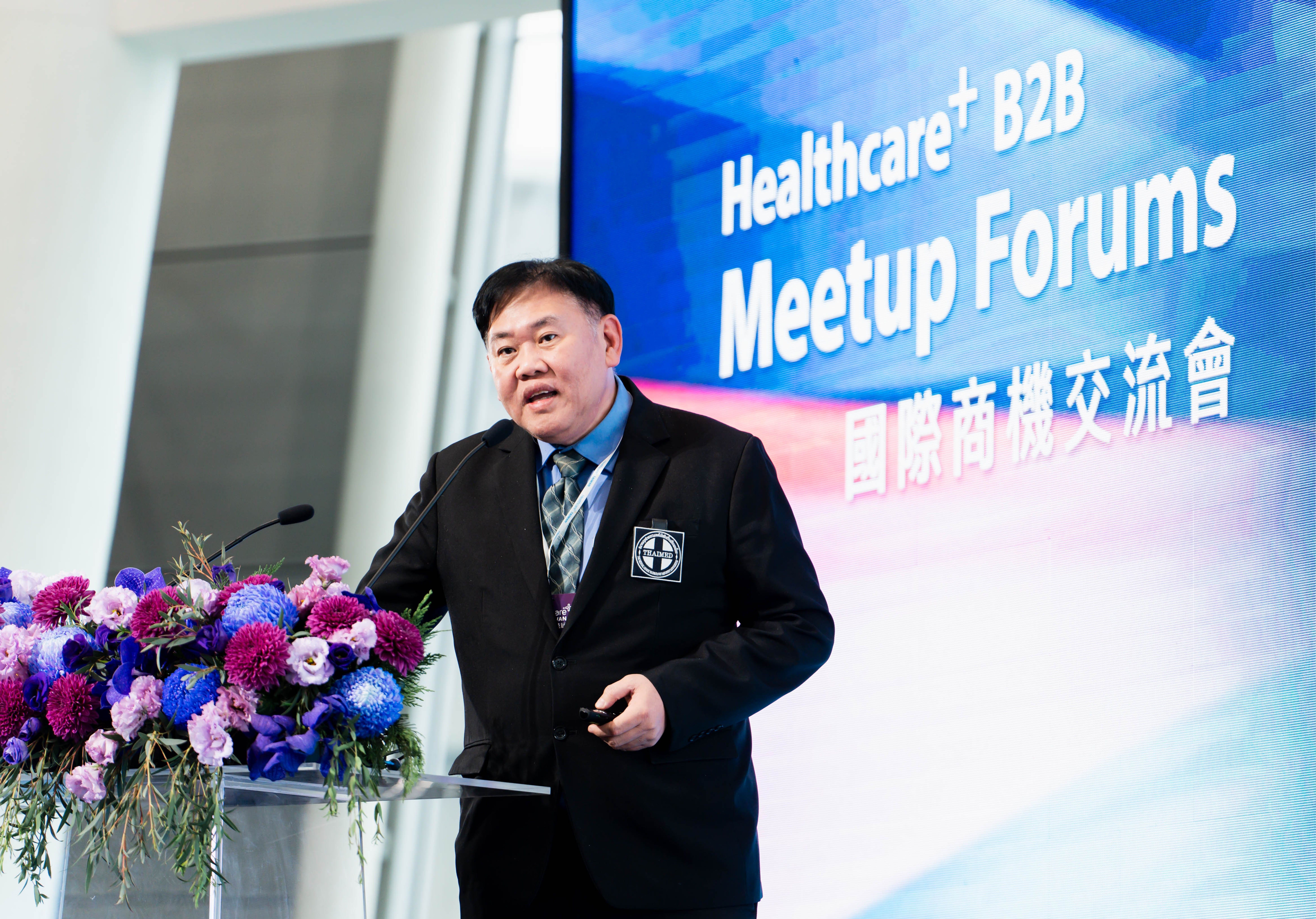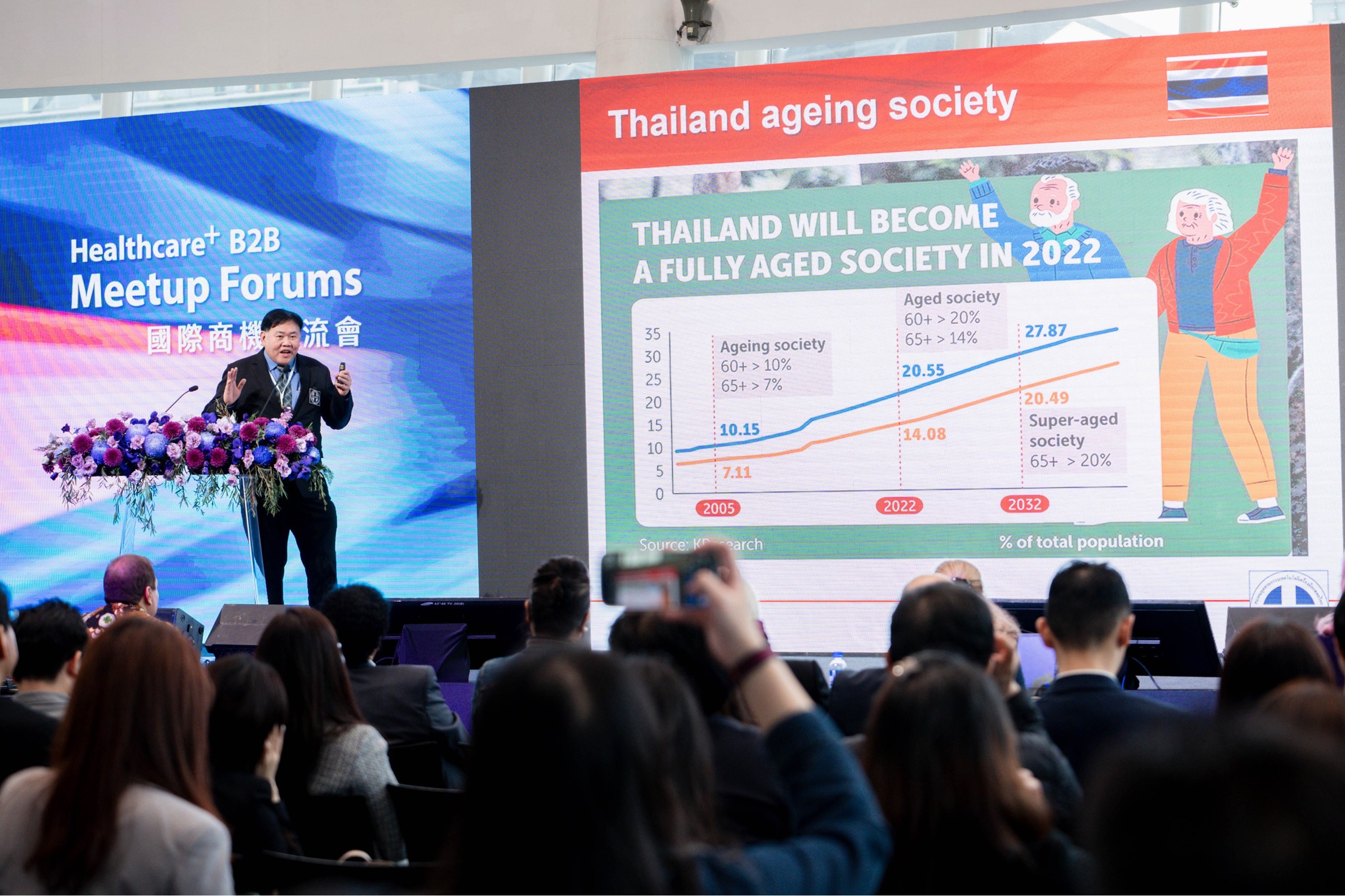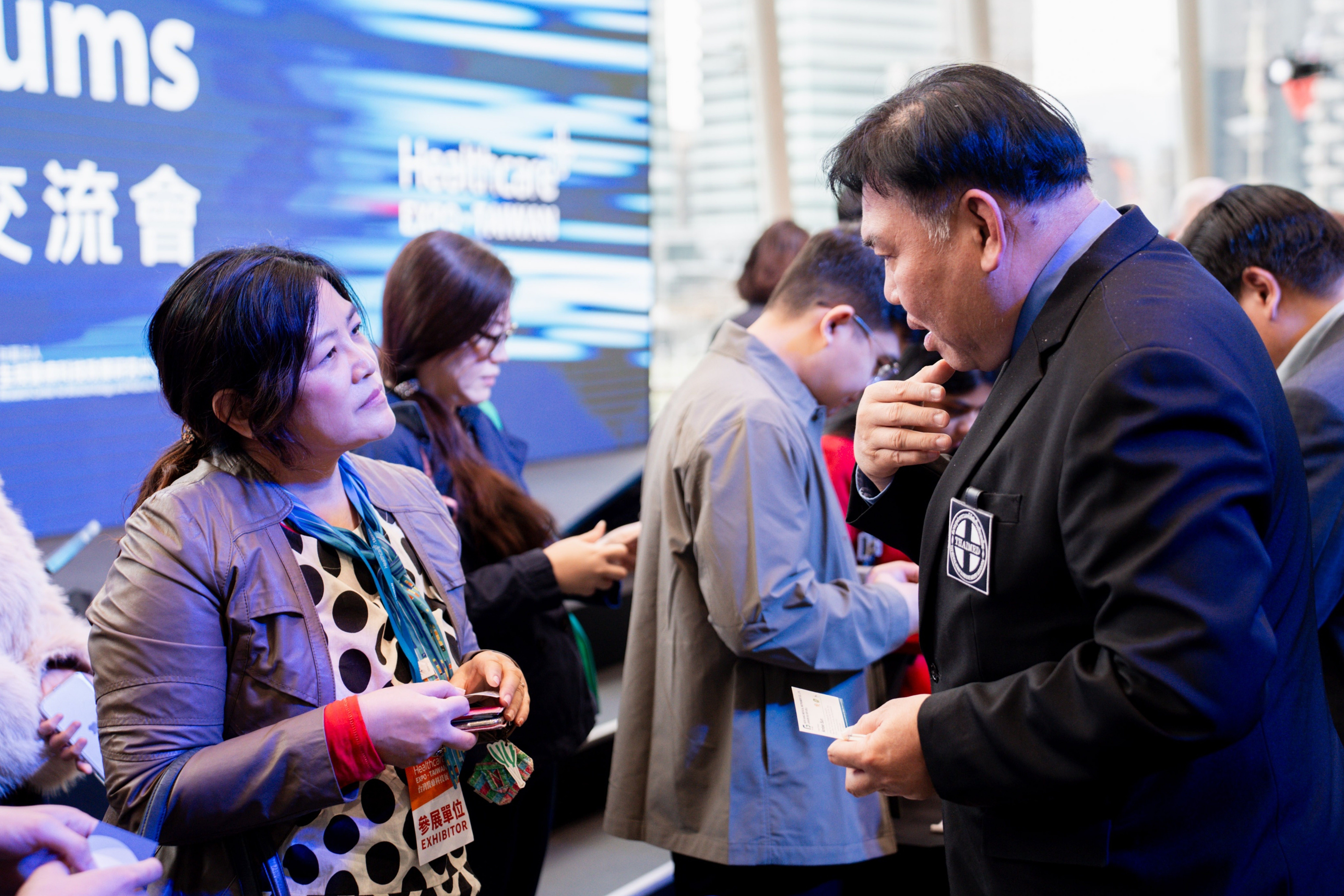
THAIMED President Visits Healthcare+ Expo Taiwan, Urges Long-Term Cooperation in Elderly Care Innovation
2025-07-13
📣Unlock New MedTech Partnerships in Asia!
【2025 Healthcare+ Expo Registration Opens Now ▸ https://ibmi.pse.is/7mn2dd 】
Thailand officially became classified as an aging society in 2023 and is expected to become a super-aged society by 2029. This nationwide demographic shift is dramatically reshaping the country’s healthcare landscape. To seek innovative solutions, Preecha Bhandtivej, President of the Thai Medical Device Technology Industry Association (THAIMED), led a delegation to Taiwan during the 2024 Healthcare+ Expo Taiwan. The visit focused on exploring smart healthcare technologies to address aging challenges, highlighting Taiwan’s key role in the global medical technology arena.


Preecha Bhandtivej, President of the Thai Medical Device Technology Industry Association (THAIMED), highlighting Thailand's aging society as a significant driver for innovative healthcare solutions and expressing interest in Taiwan's smart healthcare technologies at the 2024 Healthcare+ Expo Taiwan.
“Thailand has about 70 million people, with 31% aged 60 or above,” Bhandtivej said. This creates urgent demand for medical devices related to health screening, long-term care, and post-operative rehabilitation. Thailand’s healthcare expenditure reached $25.3 billion and is projected to surge to $47.9 billion by 2026, accounting for 6.6% of GDP. Bhandtivej explained, “Since we cannot fully produce medical devices domestically, we actively seek long-term partnerships with Taiwan.”
During the visit, Bhandtivej highlighted Taiwan’s innovations in smart healthcare, including AI applications, medical robots, minimally invasive surgery, advanced imaging, telemedicine, pharmacy systems, and eldercare aids like kidney care equipment, knee supports, and respiratory devices. “Taiwan’s products perfectly match our market needs, especially the maturity of medical robots and AI technologies,” he noted.

Preecha Bhandtivej leading Taiwanese medical device or healthcare sectors discussed potential collaborations and market opportunities during the Expo.
Bhandtivej also revealed two main entry routes for Taiwanese companies into Thailand: establishing local offices or partnering with distributors. “Thailand currently has about 6,000 medical device importers, and the market is very open,” he said. The Thai FDA has introduced a one-stop review system and offers expedited approval-cutting review times by one to two weeks-for products certified by Singapore, the US, Canada, the EU, or Australia, significantly speeding market access.
Besides rising medical device demand, Thailand faces severe challenges in long-term care. The population aged 80 and above needing care is expected to reach 2.5 million in 20 years. However, professional and family caregivers remain insufficient, driving urgent demand for quality long-term care facilities, home nursing, and upscale retirement communities. Related industry revenue surpassed $70 million in 2023. In response, the Thai government collaborates with the private sector to promote innovative care models, focusing on preventive care, chronic disease management, and health promotion.
Bhandtivej holds multiple key roles in Thailand’s industrial development, reflecting the country’s strong interest in Taiwan’s medical technology. He expressed hope that bilateral cooperation will build a more resilient and inclusive elderly care system. For Taiwanese manufacturers, this represents not only access to Thailand's substantial healthcare market but also a strategic entry point to the broader Southeast Asian region.